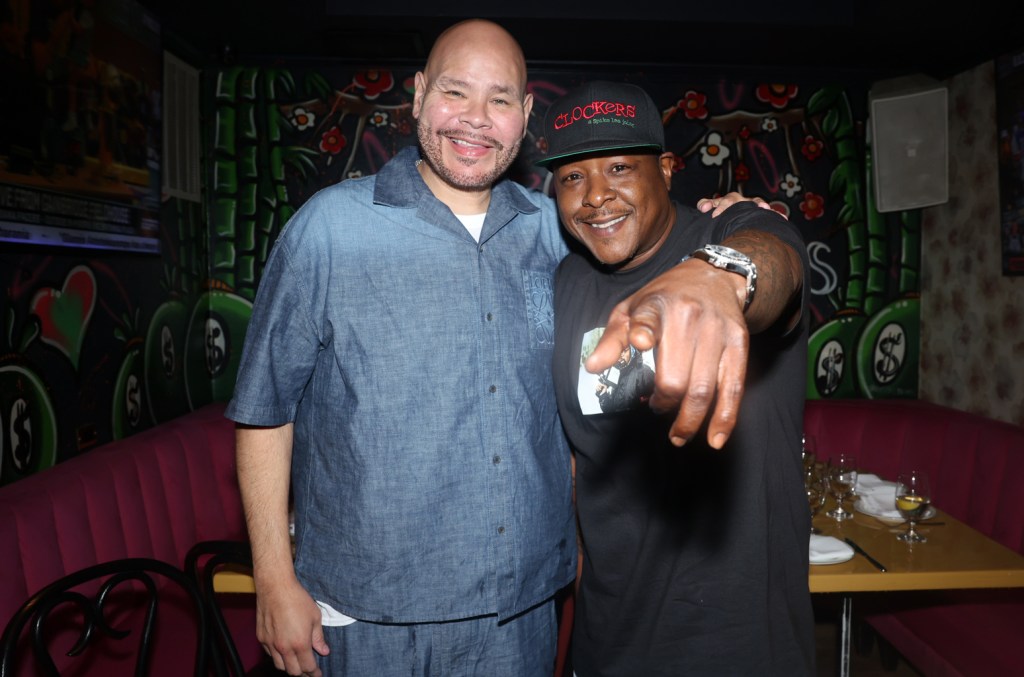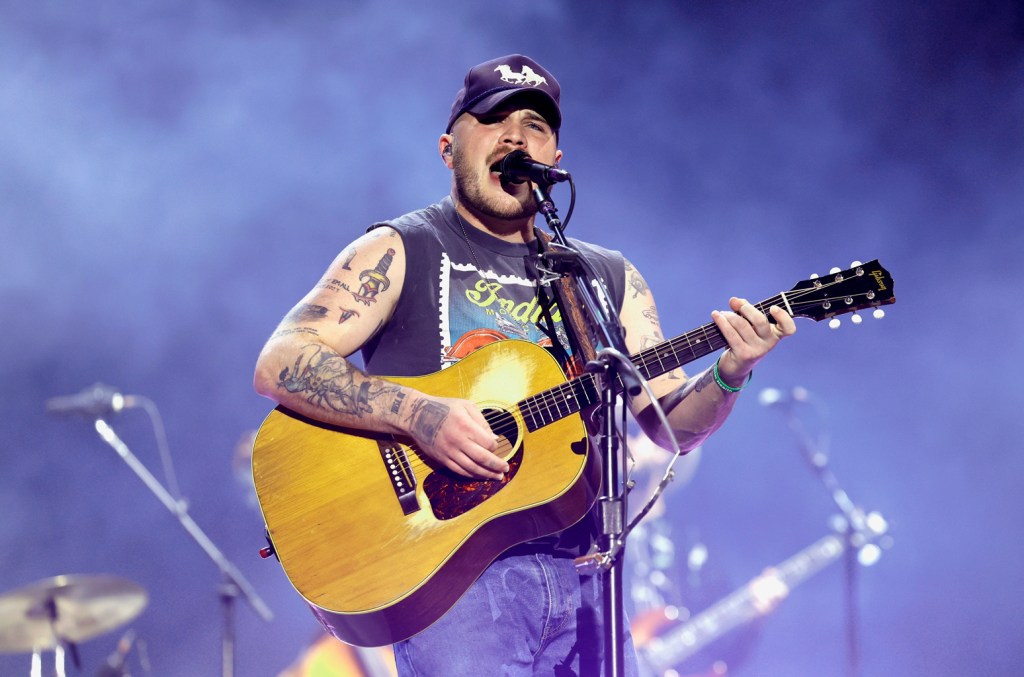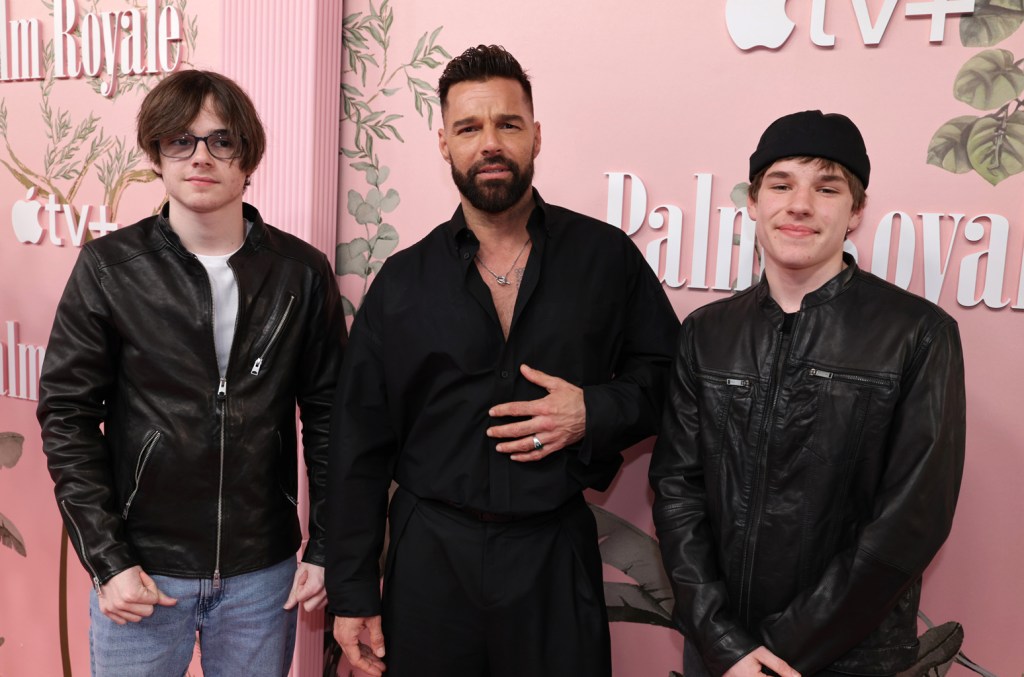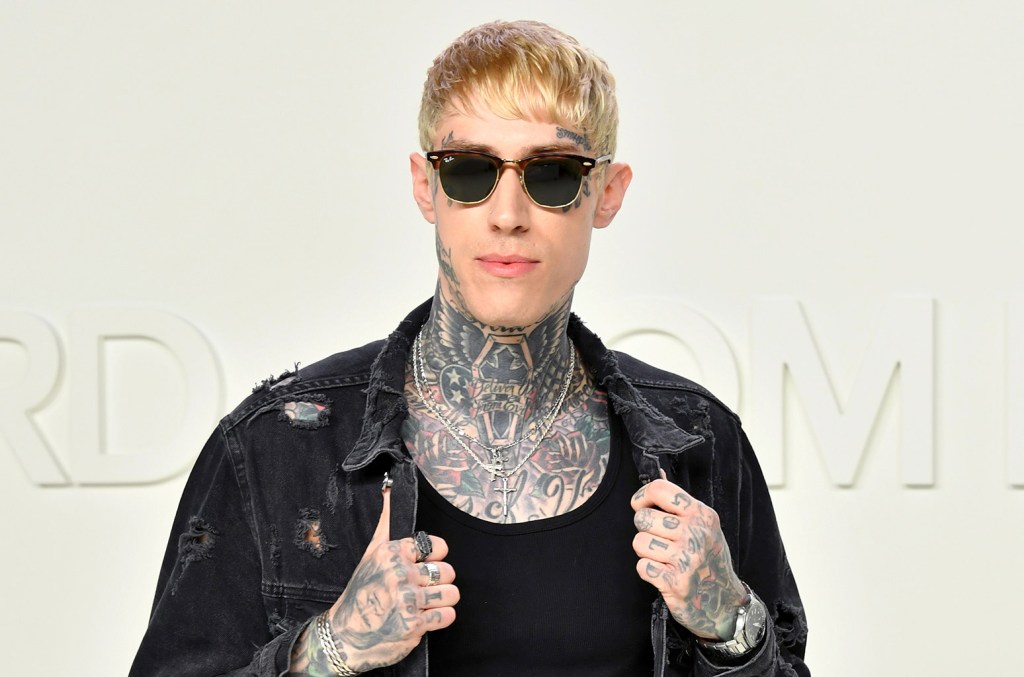Music
Page: 162
Jen Majura, a seasoned guitarist who has performed with bands such as Equilibrium, Knorkator and Evanescence, has announced her decision to “step away” from the music industry.
Explore
Explore
See latest videos, charts and news
See latest videos, charts and news
Majura’s plans were shared on her Instagram account on Tuesday (June 10), explaining that she had come to the decision after “careful consideration, observing what‘s going on in the music industry, AI related developments and change in society.”
“Instead of wasting another year of my life constantly hoping for new energy, drive and creativity, I‘ve reached a point in my life where I can confidentially lean back in peace,” she wrote. “While time allowed me, I was able to collect an amazing amount of beautiful experiences, tours, shows, travels and moments! I am grateful for every bit of that, but the world has changed. I can confidently make up my mind to stop.
Trending on Billboard
“I am not saying that I will never create any music again, whether recorded or live – but for now I feel there are healthier and better things to fill my life with good vibes and not deal with the overwhelming amount of ridiculousness that comes with the music industry now days. I just can’t identify with today‘s attitude and values anymore.”
As Majura continued she shared her well wishes to “all the ambitious and remaining ‘creators’, young and old,” before offering four singles to her fans as something of a parting gift.
“As a final musical endeavor I wanna share 4 tracks with you,” she wrote. “Songs that were written over a decade ago together with the great guitarist Dennis Hormes. I found these old demo recordings while cleaning out stuff from my computer and thought they are too good to not be shared.”
A musician from an early age, Majura has performed professionally since 2000, with work as a guitarist and bassist in bands such as Equilibrium, Knorkator and Black Thunder Ladies, and a handful of solo albums to her name.
Majura came to widespread attention in 2015 when she took over from Terry Balsamo as the lead guitarist of Arkansas rockers Evanescence. Performing on the band’s most recent two albums (2017’s Synthesis and 2021’s The Bitter Truth), Majura’s exit from the band was announced in May 2022.
“It has been a very special chapter in the band with our dear friend Jen Majura, but we have decided it’s time to go our separate ways,” the group said at the time. “We will always love her and support her, and can’t wait to see what she does next! We are so grateful for the good times and great music we made all around the world together.”
Following her departure from Evanescence, Majura co-founded “crossover metal band” How We End, and also performed vocals on the track “Deep Inside,” from former Dream Theater drummer Mike Mangini’s Invisible Signs albums.
Douglas McCarthy, the co-founding vocalist of English industrial dance outfit Nitzer Ebb, has passed away at the age of 58.
McCarthy’s death was confirmed by Nitzer Ebb’s official social media account on Tuesday (June 11). “It is with a heavy heart that we regret to inform that Douglas McCarthy passed away this morning of June 11th, 2025,” a post read.
“We ask everyone to please be respectful of Douglas, his wife, and family in this difficult time,” it added. “We appreciate your understanding and will share more information soon.”
Explore
Explore
See latest videos, charts and news
See latest videos, charts and news
McCarthy co-founded Nitzer Ebb in 1982 alongside school friends Vaughan ‘Bon’ Harris and David Gooday, with the group taking inspiration from the post-punk genre for their early single releases. That sound soon evolved with more industrial and electronic influences, with the band quickly becoming regarded as noted figures within the ‘electronic body music’ scene – a genre that combined elements of industrial and punk with dance music.
The group’s debut album, That Total Age, would be issued in May 1987, and though avoiding chart success, the single “Join the Chant” would reach No. 9 on the Dance Club Songs charts.
Trending on Billboard
Nitzer Ebb would remain a fixture of the chart in the coming years, with singles such as “Control I’m Here,” “Lightning Man,” and “Fun to Be Had” all appearing therein, with the latter giving the band their highest peak when it reached No. 5 in 1990. They would also impact the Alternative Airplay charts, with 1991’s “Family Man” giving them a career high when it reached No. 21.
While 1991’s Ebbhead would be their only record to reach the Billboard 200 (peaking at No. 146), their follow-up, 1995’s Big Hit, would be the band’s last for 15 years, with Nitzer Ebb splitting soon after its release.
McCarthy would contribute to Recol, the solo project of Depeche Mode‘s Alan Wilder throughout the ’90s, and later collaborate with French producer Terence Fixmer as one half of Fixmer/McCarthy. Nitzer Ebb would reform in 2006 and release their final album, Industrial Complex, in 2010. In 2013, McCarthy would release his only solo album, Kill Your Friends.
In recent years, McCarthy had suffered from noted ill health, with Harris taking over vocals for a series of 2021 performances after McCarthy collapsed before a show due to a “pre-existing” medical condition. In early 2024, McCarthy announced he would no longer be performing live after being diagnosed with cirrhosis of the liver.
Ananda Lewis, who had a celebrated run on MTV as a veejay and as the host of shows including Total Request Live and Hot Zone, has died at age 52. News of Lewis’ death was confirmed in a Facebook post by her sister, Lakshmi Emory. In 2020, Lewis revealed that she had been diagnosed with […]
Fat Joe and Jadakiss hosted a Father’s Day luncheon at Sei Less NYC on Wednesday afternoon (June 11) for 70 fathers and their families who have been impacted by the criminal justice system. The Joe & Jada podcast co-hosts shared words of wisdom and traded stories with the families on hand while munching on an […]
After previously clashing with fellow Tulsa, Oklahoma-native musician John Moreland, Zach Bryan has released a new version of his song “Memphis; The Blues,” replacing Moreland’s feature with J.R. Carroll.
The Moreland version of “Memphis; The Blues” had been included on Bryan’s 2024 album The Great American Bar Scene. Carroll has been a keyboard player in Bryan’s band and also released his first full-length album, Dark Cloud, in 2024.
“‘Memphis; The Blues’ is back out with @jrvcarroll,” Bryan wrote on Instagram. “Promise is a promise. Honored to have done this with one of my best friends in the world. Catch us belting this in Europe and across the states all summer. Thank you brother and we love u guys.”
Trending on Billboard
The new version of the song comes after Moreland voiced his disapproval when it was revealed that Bryan had reportedly sold his publishing rights to Merritt Group and reupped his label deal with Warner. The Hollywood Reporter noted that the deals earned Bryan approximately $350 million.
“$350 M is a lot to pay for the f—in’ off-brand version of me,” Moreland wrote May 7 on Instagram, adding, “Y’all have a great day.”
Bryan responded by sharing a screenshot of Moreland’s comments and stating, “Just saw this from an artist I’ve always respected and supported. Not trying to be dramatic but refuse to have anyone with a problem with me on my records. Replacing ‘Memphis the Blues.’ If it goes down for a bit just know that this is the reason! No hard feelings! Confused as sh–, Tulsans look out for Tulsans.”
Bryan then removed the Moreland collaboration from streaming platforms.
Moreland responded by saying he didn’t regret his statement or the fallout. “As far as I’m concerned, getting kicked off a Zach Bryan album is way f—ing cooler than being on a Zach Bryan album. At this point, I’ve hung out with him five, six times. I don’t like this mother—-er. Like, am I supposed to be upset?”
Moreland added, “If I was asked to be on the album today, I wouldn’t do it. I don’t want to be on an album with a dude who is a di–head to my wife and my friends right in front of me every time I see him. I don’t want to be on an album with a dude who I’ve heard tell borderline racist jokes more than once. I don’t want to be on an album with a dude who brings a 19-year-old girl in the bar, and then when they tell him she can’t be in there, looks at me like I’m supposed to have his fucking back. I don’t like that person.”
After the new version of the song released on June 11, Carroll wrote on Instagram Stories, “It is out. I hope y’all like it. I’m going into hiding in a couple of hours so I don’t read comments that hurt my feelings hope you guys have a good day.”
Listen to the new version with Carroll below:
For many artists, there is something even more powerful than filling stadiums, pulling all-nighters in recording studios, topping charts, or receiving awards: being a father. On Father’s Day 2025, celebrated this Sunday (June 15), we recognize not the touring singer or the hitmaker, but the man behind the microphone. He who lovingly combs his daughter’s […]
50 Cent is never one to shy away from controversy, and he threw himself into the middle of the highly publicized rift between President Donald Trump and Elon Musk. 50’s taken his social media game to another level since figuring out how to use AI-generated images, and he posted another two on Tuesday (June 10) […]
Trace Cyrus is once again airing out his grievances against father Billy Ray Cyrus, whom the Metro Station musician called a “delusional, evil person” while accusing him of skipping an important family member’s funeral Tuesday (June 10).
In a post on Instagram, Trace wrote a heated message under a photo of his dad that started with, “This man is so hungry for fame it’s pathetic.”
“He really flew to Italy for a fashion show but wouldn’t come to LA for Mammie’s funeral while he was still married to my mom,” he continued, referring to the late mother of Tish Cyrus, Trace’s mom and Billy Ray’s ex-wife. “Even after his daughter got him a $60k private jet like he demanded.”
Trending on Billboard
“You’re the lamest man ever to walk planet earth,” Trace added. “Honestly embarrassed to have ever considered you my idol. The best thing to come from your downfall is it made me go into beast mode. I refuse to be a washed up, delusional, evil person when I’m old like you.”
Billy Ray’s rep had no comment when contacted by Billboard.
The “Achy Breaky Heart” singer’s relationship with his adopted son has been fraught for some time now. In January, Trace shared an open letter to his dad, stating that he and his sisters were “genuinely worried” for Billy Ray.
“You’ve pushed all of us away,” the younger Cyrus wrote at the time. “We are all hanging on to memories of the man we once knew and hoping for the day he returns. You’re not healthy, Dad and everyone is noticing it.”
Shortly afterward, Billy Ray posted that he was “praying” for his family.
After marrying Tish in 1993, the country star — who is also Dad to a son named Christopher from a previous relationship — adopted his then-wife’s two kids, Trace and Brandi. The former couple welcomed three more children: Miley, Noah and Braison.
Billy Ray and Tish divorced in 2022, and rumors of a rift in the Cyrus family have ebbed and flowed pretty much ever since. In a recent interview with The New York Times, however, Miley said that she was no longer “estranged” from her father, adding, “My dad and I have had our challenges over the years … I’m at peace knowing bridges have been built and time has done a lot of healing.”
Tish is now remarried to actor Dominic Purcell, while Billy Ray is dating actress Elizabeth Hurley after ending his seven-month marriage to singer-songwriter Firerose in June 2024. In that same NYT interview, the “Flowers” singer commented on her parents’ new relationships, telling the publication, “Now that my mom is so in love with my stepdad, who I completely adore, and now that my dad, I see him finding happiness, too — I can love them both as individuals instead of as a parental pairing.”
Four years after welcoming their first child together, Natti Natasha and Raphy Pina announced they are expecting their second baby together. The news was shared on Wednesday afternoon (June 11) via a short clip. The Dominican appeared to be announcing a new tour, at first. In the video, there’s Raphy making some calls, Natti’s stylist […]
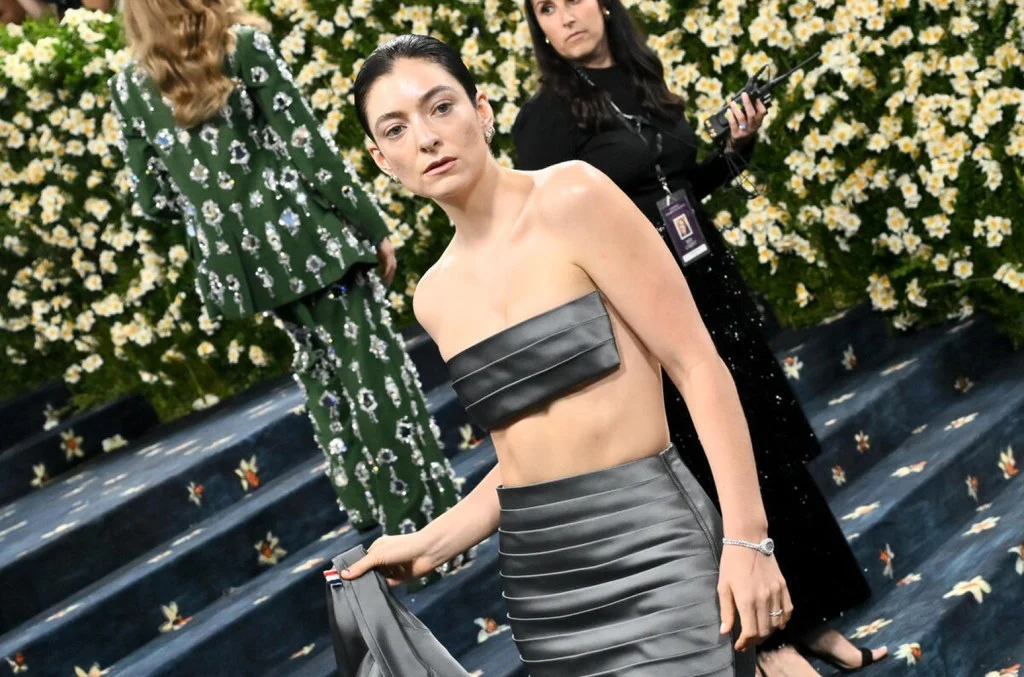
Lorde was on the air with BBC Radio 1 recently — and unbeknownst at first to Gracie Abrams, Charli xcx and Chappell Roan, they were, too.
In a TikTok clip posted Wednesday (June 11), the New Zealand native played a hilarious game of “Sitting or Standing” on the English radio station, during which she was tasked with guessing whether a few of the famous friends in her contact list were on their feet or seated at that very moment before calling to check. Starting with the “That’s So True” singer, Lorde incorrectly bet that she would be sitting.
“I’m standing, should I sit?” a confused-sounding Abrams answered after picking up the phone, sweetly adding, “I love you.”
The Auckland native was 0 for 2 when she also guessed that the “Pink Pony Club” artist would be sitting down. “I’m so sorry, I’m on Radio 1, I’m doing this horrible show where they make me ask this ridiculous question,” a playfully frustrated Lorde explained to Roan after hearing her answer, to which the perplexed latter asked, “Wait, so is this on the radio?”
Trending on Billboard
When it came time to call Charli, the “Von Dutch” singer was immediately suspicious as Lorde asked whether she was sitting or standing. “What is happening?” she said warily. “I’m lying down.”
“I’m so hungover,” Charli drawled as the “Royals” singer laughed. “Oh, hi everyone. I can’t believe I’m on the radio like this.”
“You’re perfect,” Lorde responded. “Keep lying down, I love you. I owe you.”
The two-time Grammy winner has strong friendships with all three of the artists she called. In her April Billboard cover story, Abrams gushed that her pal is “like 800 years old inside … whenever we’re together, I feel my nervous system regulate differently,” while Roan said last year that Lorde reached out and gave her a list of advice for handling the “abusive” elements of fame.
Lorde’s relationship with Charli has been a little bumpier, with the two women going through a rough patch before publicly resolving their issues on the “Girl, So Confusing” remix supporting Charli’s Brat album. They would later team up to perform the track during Charli’s Coachella set earlier this year.
The “Green Light” artist is now gearing up to drop an LP titled Virgin on June 27, marking her first full-length in four years. So far, she’s shared two singles from the project: “What Was That” and “Man of the Year,” which has recently been taking flight on TikTok thanks to a trend that finds users posting screenshots of toxic messages sent by ex-boyfriends.
Also on Monday, Lorde hilariously reacted to the trend by posting a video of herself widening her eyes and shaking her head in disappointment. “These messages…….,” she wrote in her caption.
Watch Lorde call up Abrams, Roan and Charli on BBC Radio 1 and check out her “Man of the Year” TikTok below.

 State Champ Radio
State Champ Radio 